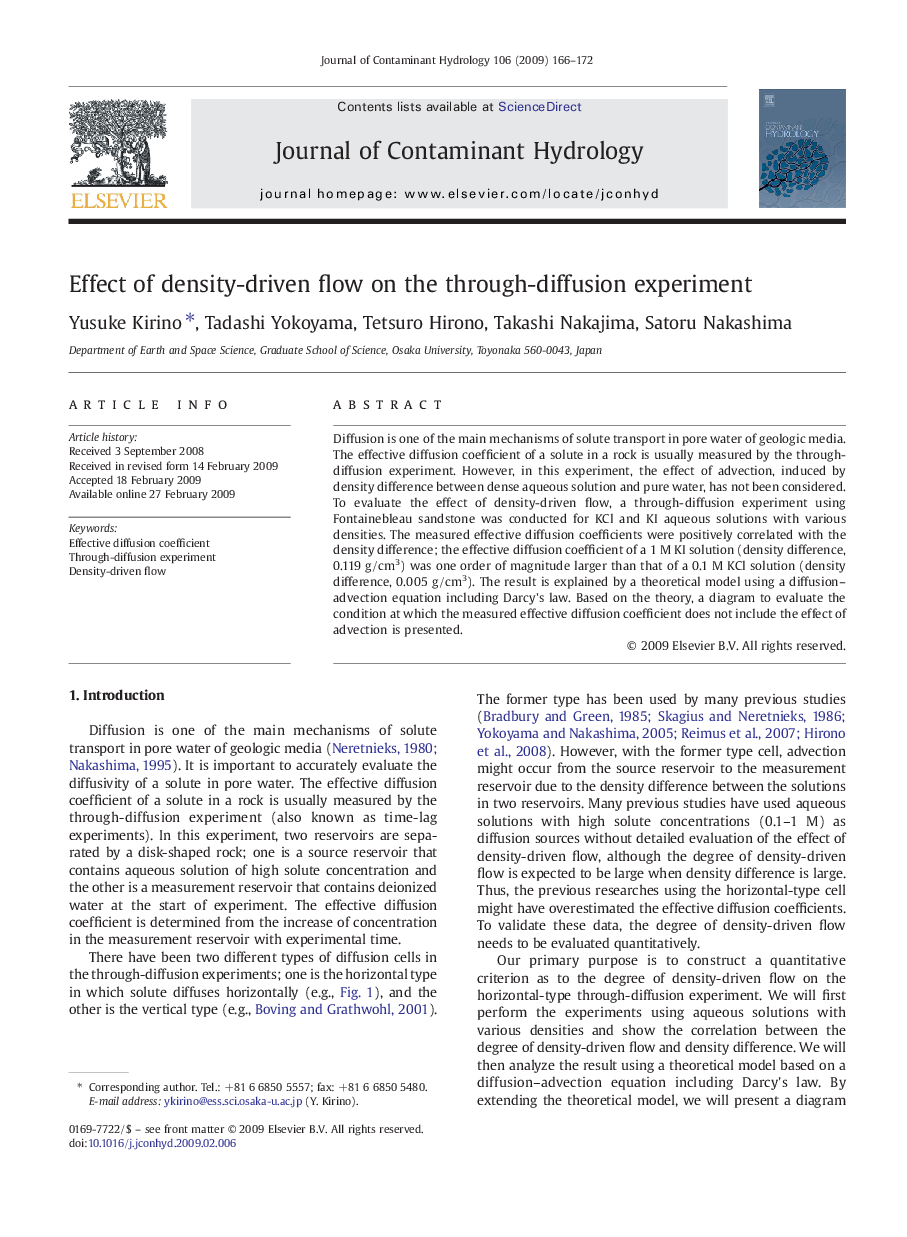| Article ID | Journal | Published Year | Pages | File Type |
|---|---|---|---|---|
| 4547197 | Journal of Contaminant Hydrology | 2009 | 7 Pages |
Diffusion is one of the main mechanisms of solute transport in pore water of geologic media. The effective diffusion coefficient of a solute in a rock is usually measured by the through-diffusion experiment. However, in this experiment, the effect of advection, induced by density difference between dense aqueous solution and pure water, has not been considered. To evaluate the effect of density-driven flow, a through-diffusion experiment using Fontainebleau sandstone was conducted for KCl and KI aqueous solutions with various densities. The measured effective diffusion coefficients were positively correlated with the density difference; the effective diffusion coefficient of a 1 M KI solution (density difference, 0.119 g/cm3) was one order of magnitude larger than that of a 0.1 M KCl solution (density difference, 0.005 g/cm3). The result is explained by a theoretical model using a diffusion–advection equation including Darcy's law. Based on the theory, a diagram to evaluate the condition at which the measured effective diffusion coefficient does not include the effect of advection is presented.
